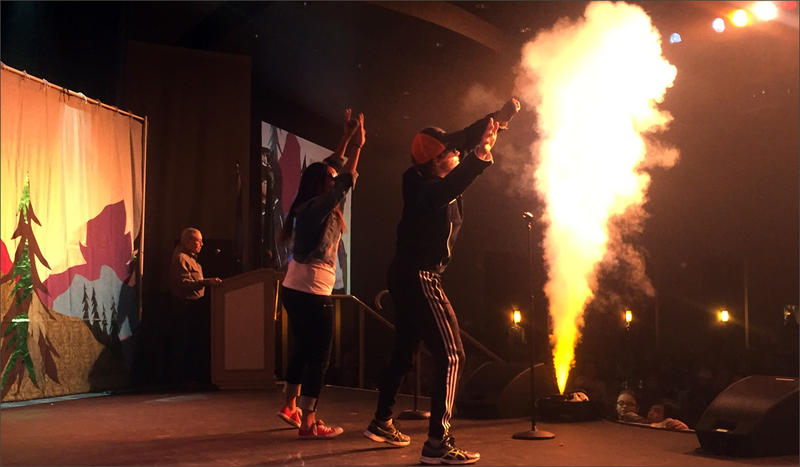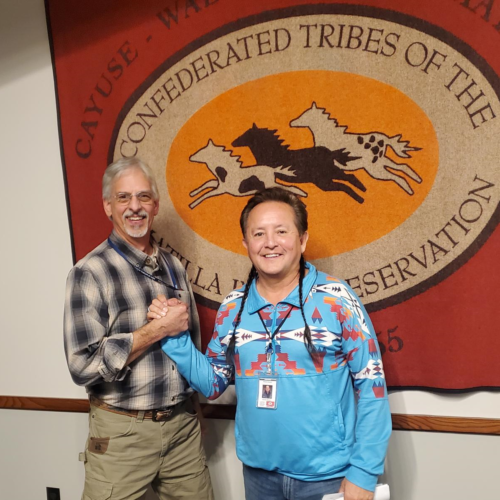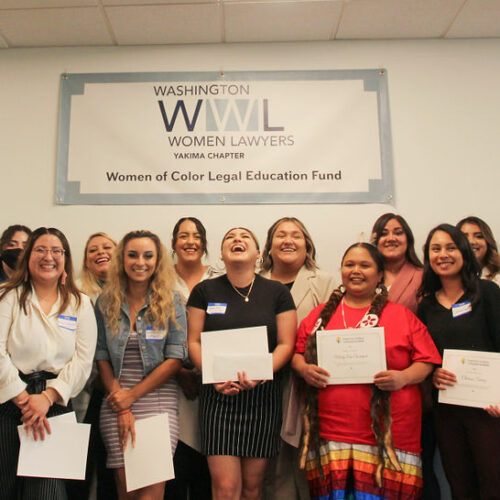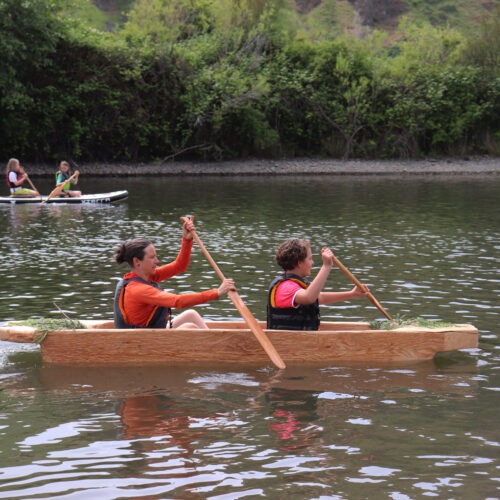
Salish Karaoke: A Competitive Celebration Helping To Preserve A Northwest Indigenous Language
Listen
What’s the best way to learn a language? Salish teachers are using music and song to introduce their Native American language to new speakers. It’s a language spoken by many tribes across the Northwest.
Every year, a conference that celebrates Salish culminates in an annual karaoke contest in Spokane. Contestants have to translate a song and perform it in front of judges.
To a newbie, Salish seems complicated. There are many Xs, what look like miniaturized Ws and lots of apostrophes. You have to close parts of your throat and move your mouth and lips to make certain sounds. To win the karaoke contest—like the ensemble who performed “My Girl”—you have to show off those skills.
Salish is considered ‘critically endangered’ by UNESCO—the cultural arm of the United Nations.
Two-hundred-fifty years ago, thousands of indigenous people spoke a dialect of Salish. In the 1870s, Native American children were forced into boarding schools, where they could only speak English. Elders fluent in Salish passed away and there were fewer and fewer people speaking it.
Today, in this part of the Northwest from about Spokane to Missoula, around 300 to 400 people speak it fluently.
Natalia Garza wants to become one of them. She took third place for her Salish performance of Dreams, by Fleetwood Mac.
Garza, moved to northeastern Washington from Mexico and decided to learn Salish three years ago.
“It’s not something that you learn in books,” she said. “It does not stay in a classroom.”
Keegan Heron won second place with his translation and performance of ‘Everybody,’ by the Backstreet Boys. Heron spent a few weeks translating the song and choreographing some dance steps to compete in this year’s contest. He’s only been studying the indigenous language for about nine months.
“There’s a lot of words that I didn’t know two weeks ago,” Heron said.
He teaches pre-school on the Flathead Indian Reservation in Montana.
“I work with four and five-year-olds and so I’m trying to teach them Salish,” Heron said. “And so, I need to learn first, before I can teach them.”
By the end of his routine, Heron was confidently dancing his way across the front of the stage, waving his arms and shouting “Everybody Dance!”—in Salish—to an audience of at least 500 people.
Grahm Wiley-Camacho has been speaking a dialect of Salish since childhood; he learned at home from his mother. Now he teaches Salish full-time in Spokane.
“They actually have a scoring rubric that they use,” he said. “There’s audience response, and the showmanship piece of it and then there’s your singing ability and then the fourth category is how much language did you use, how complex was your language?”
Wiley-Camacho uses singing in his classroom to give students more confidence and a wider vocabulary. And maybe they’ll find their way to the stage on karaoke night.
Salish Karaoke Contest organizer and Kalispel tribal member JR Bluff donned a wig and a white leisure suit and performed ‘Hound Dog’ by Elvis Presley.
“The biggest trademark of karaoke—I mean yeah it’s fun to be crazy, but to me it’s celebrating,” Bluff said. “We’re celebrating, we’re speaking it. It’s fun.”
Related Stories:

Native American Heritage Month – In their own words: Don Sampson
Gary James, left, and Don Sampson, the two original employees of the Confederated Tribes of the Umatilla Indian Reservation’s Fisheries Program, at the tribe’s Department of Natural Resources 40-year anniversary

Yakima Groups Help More Women Of Color Become Lawyers
Yakima women of color received 19 scholarships to support them in continuing their legal education. Photo: Pataathla Sutterlict Listen (Runtime 1:39) Read More women of color want to become lawyers

Carving Out Lessons From A Canoe
Building a canoe is about learning and community-building for everyone involved. That’s what one Nez Perce man said before launching a canoe that was handmade with the help of fourth graders into the water on Tuesday.















